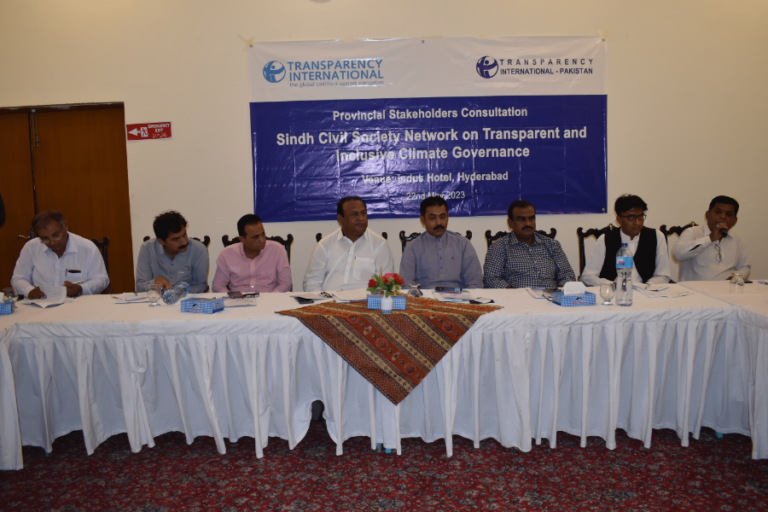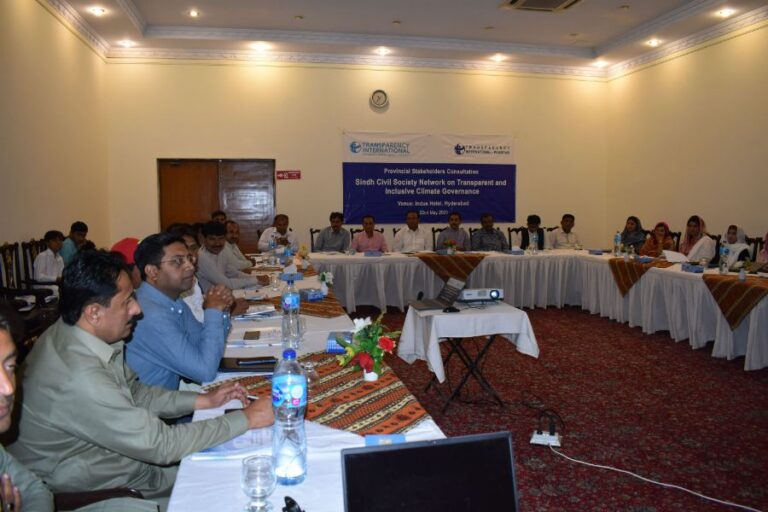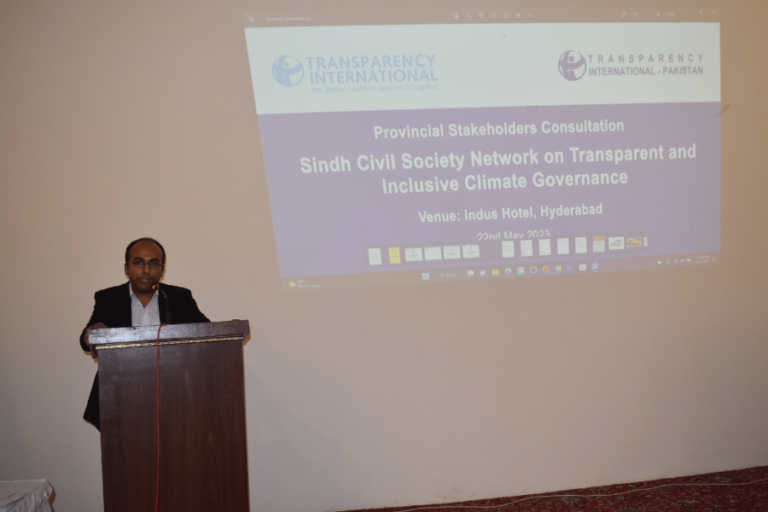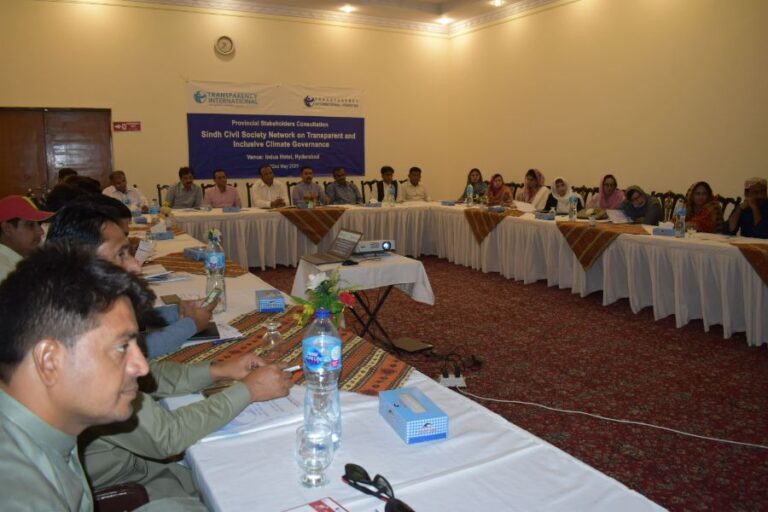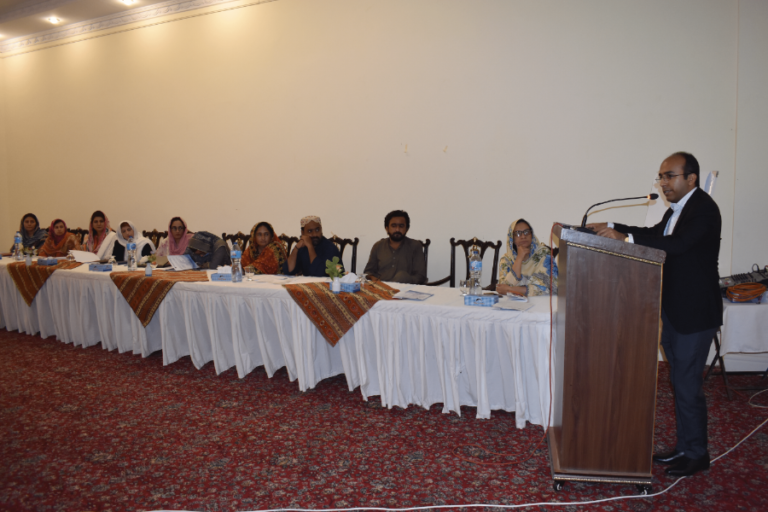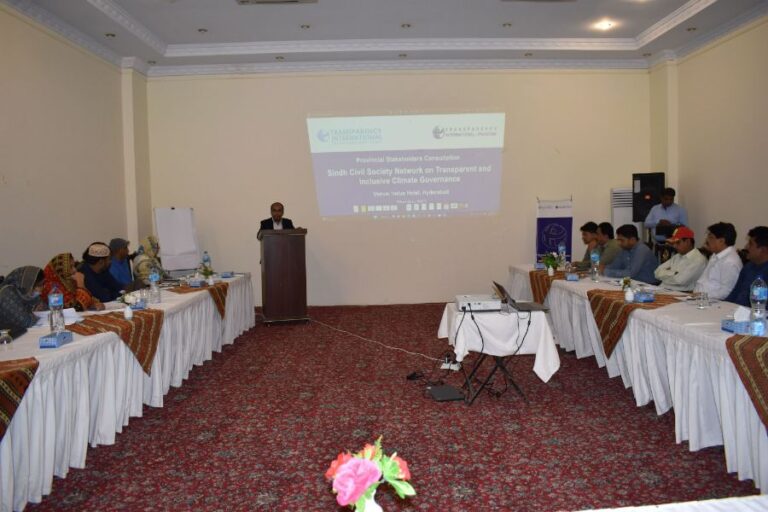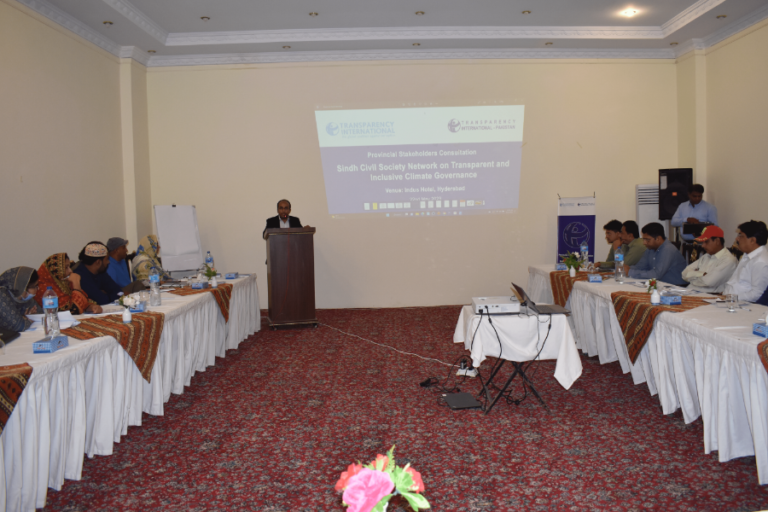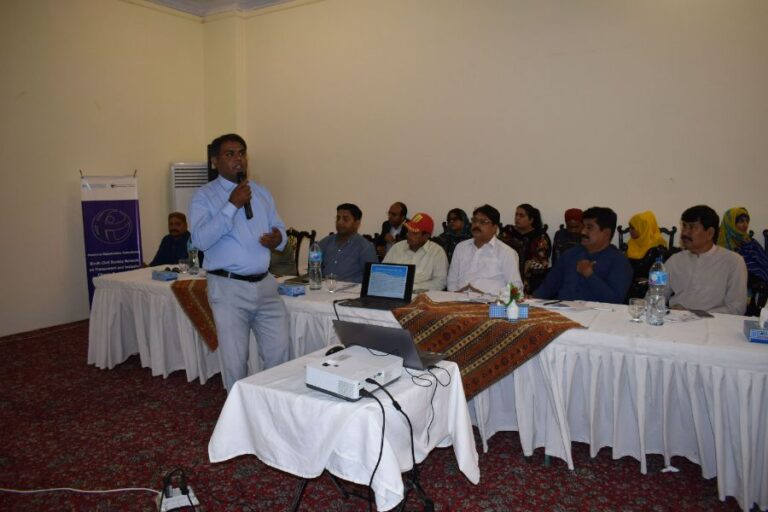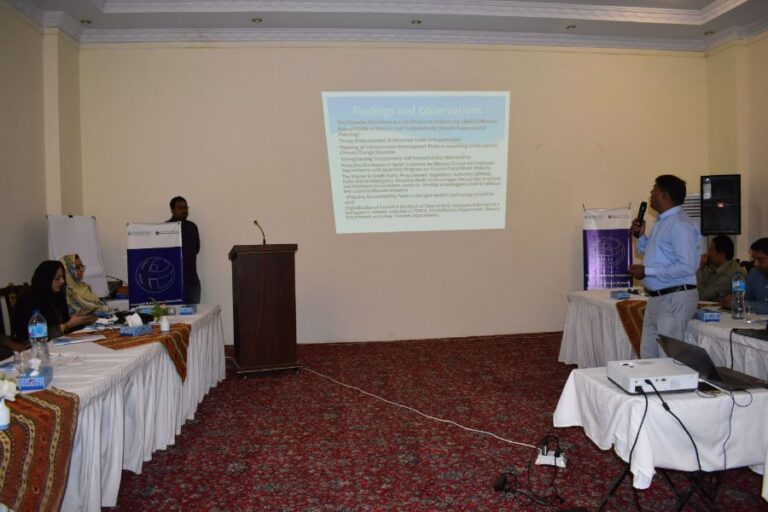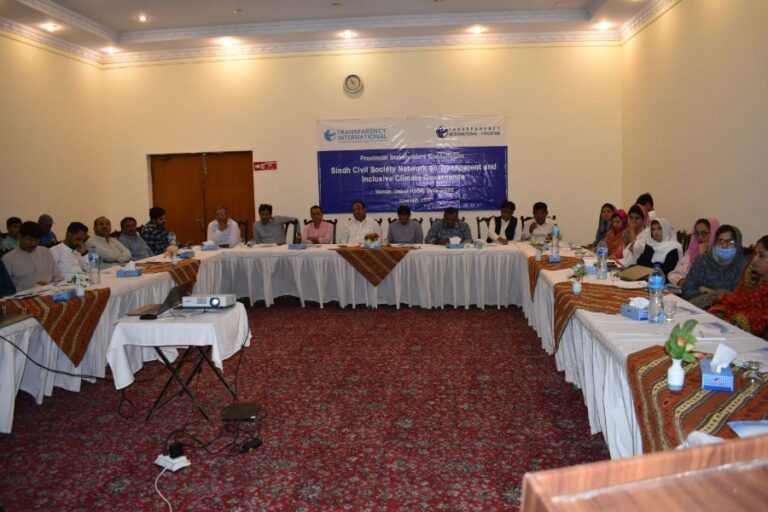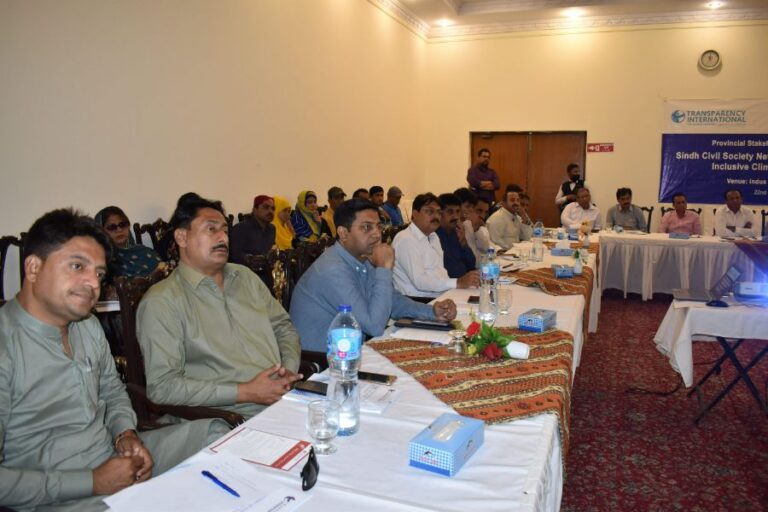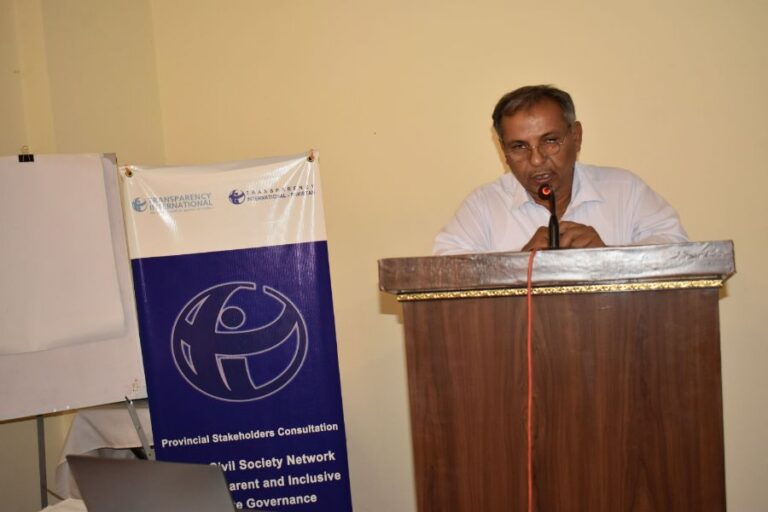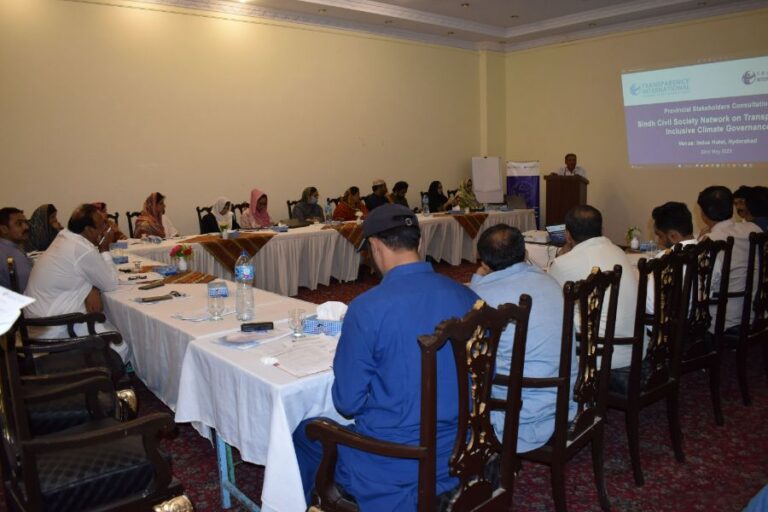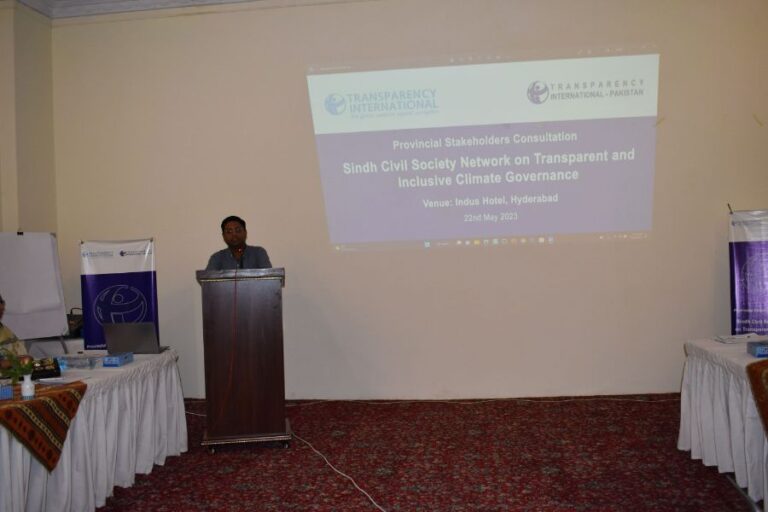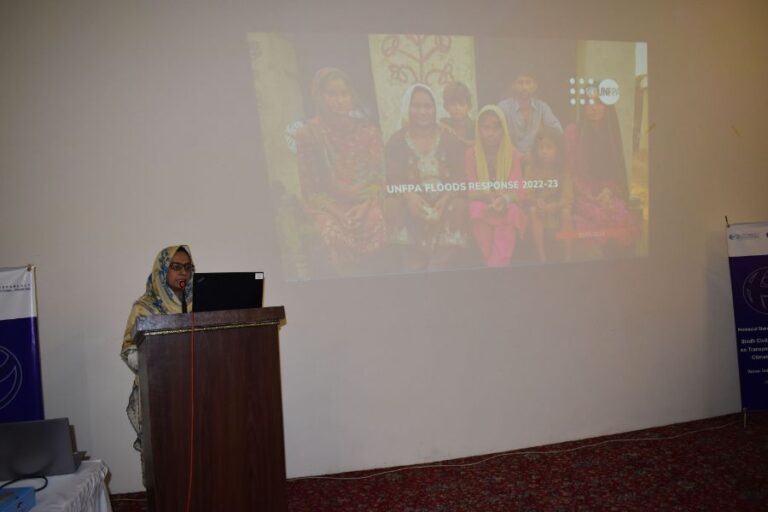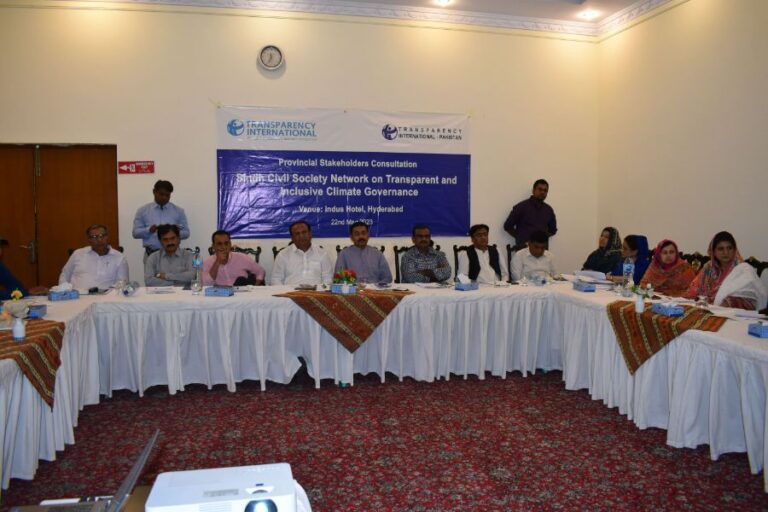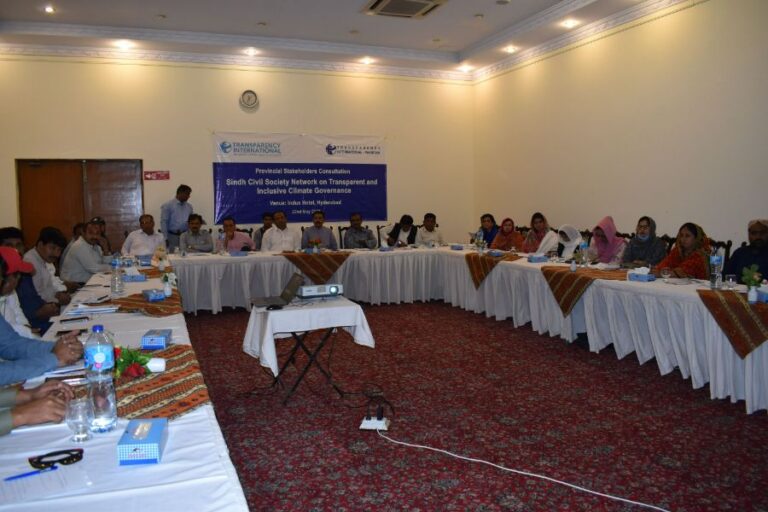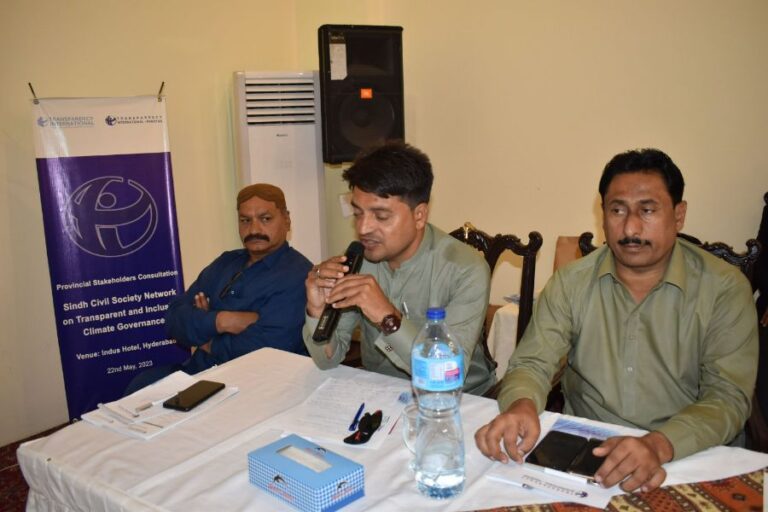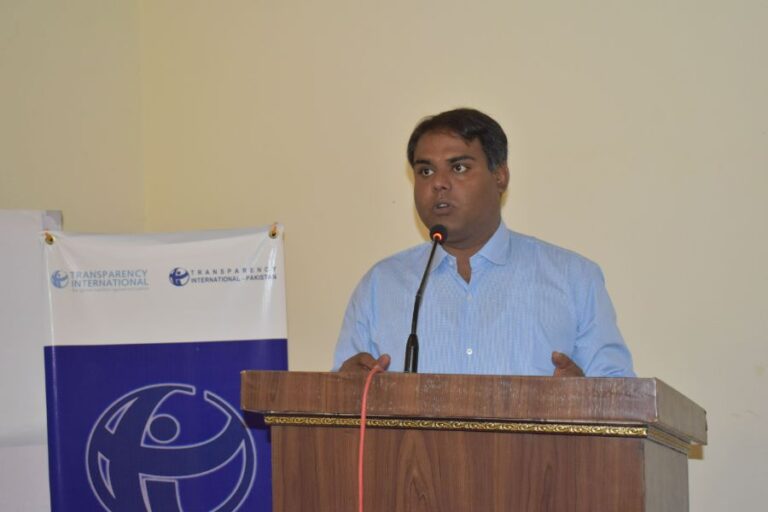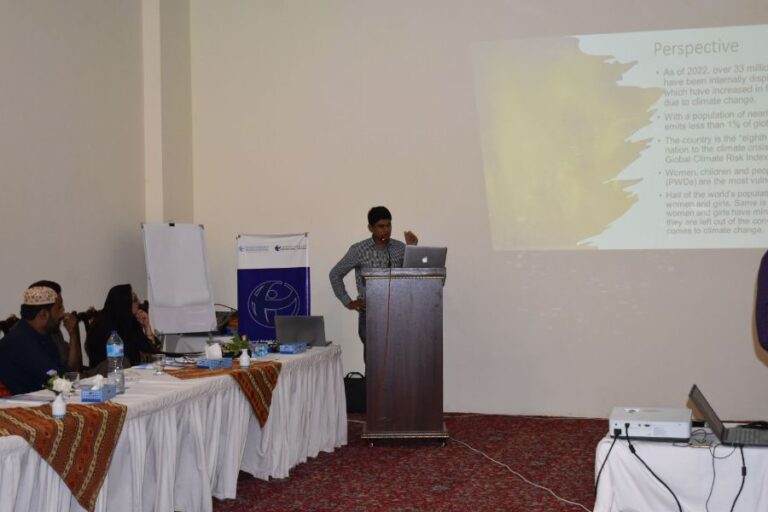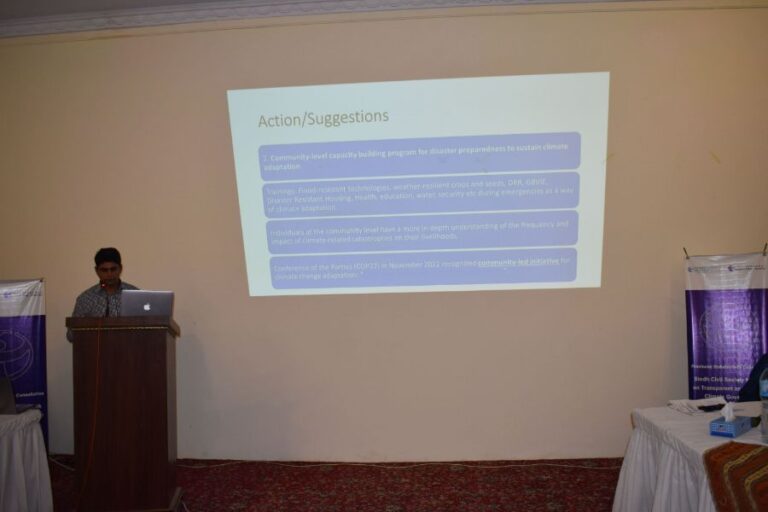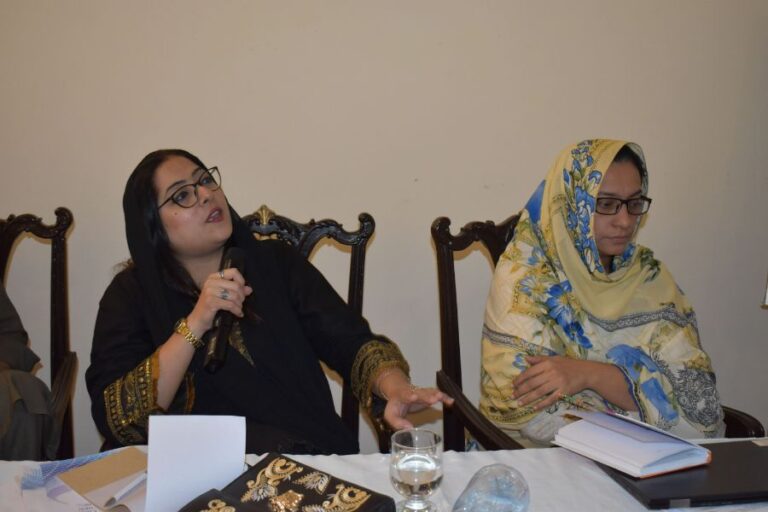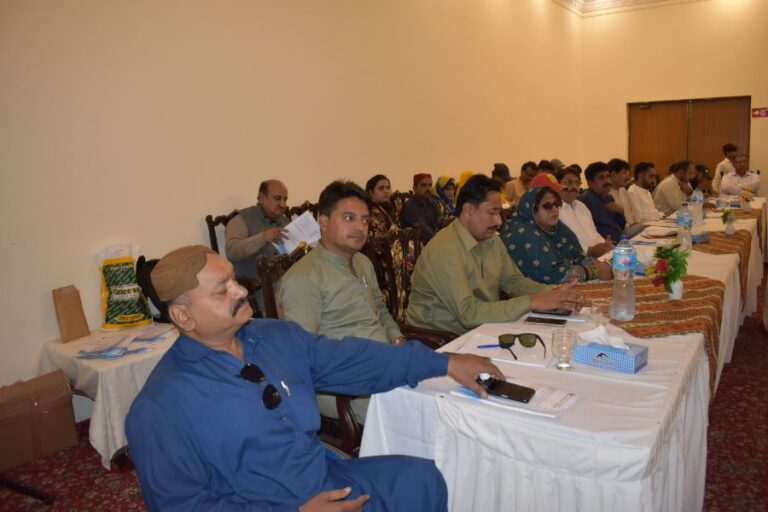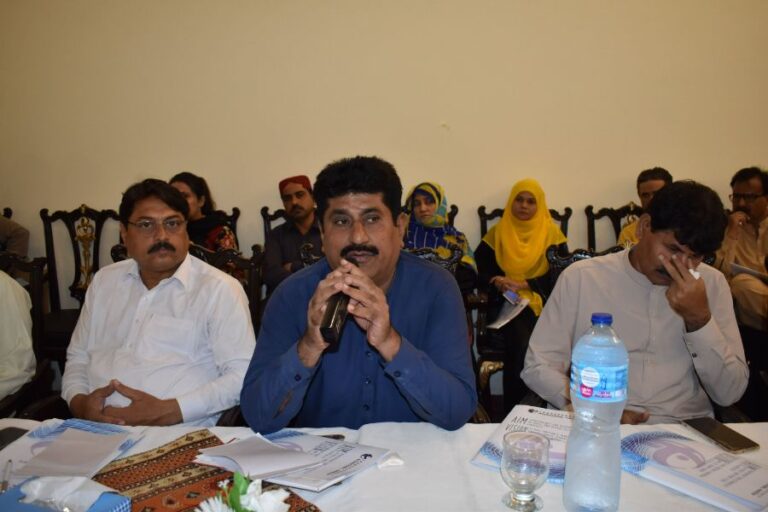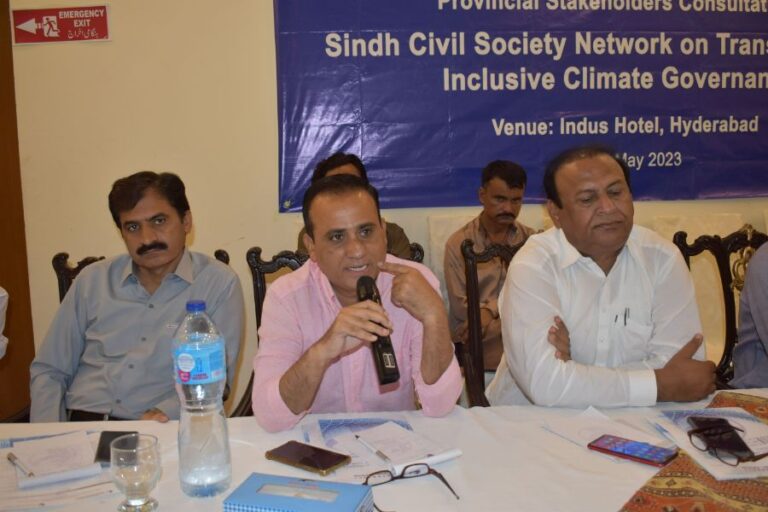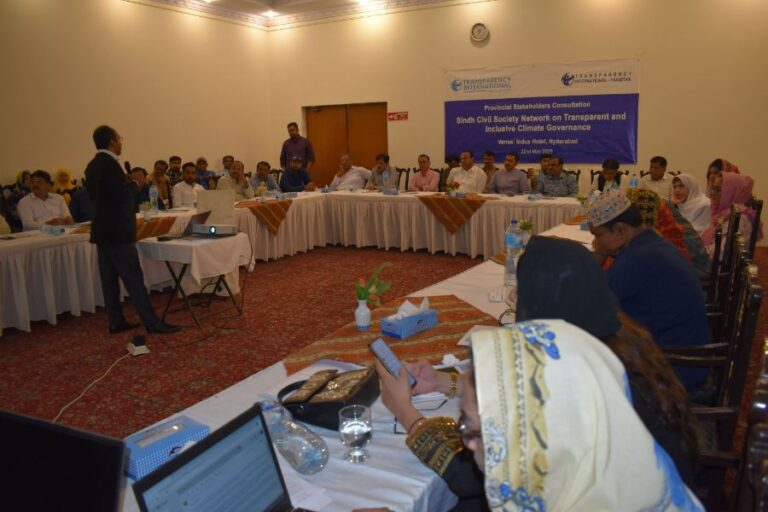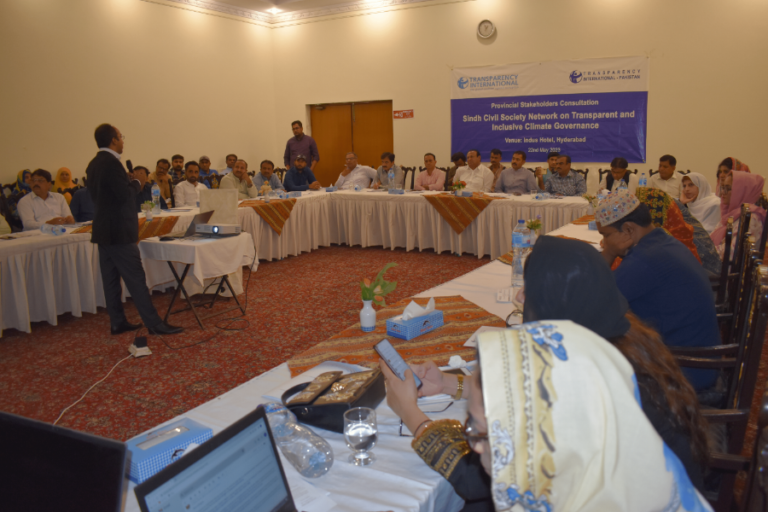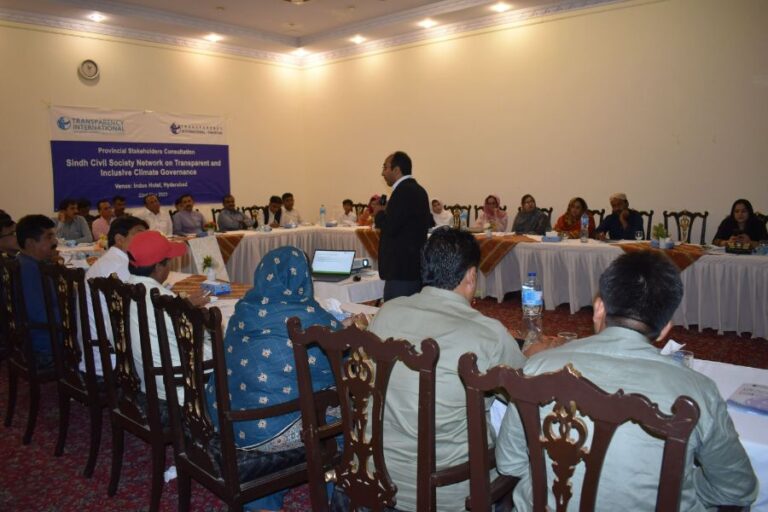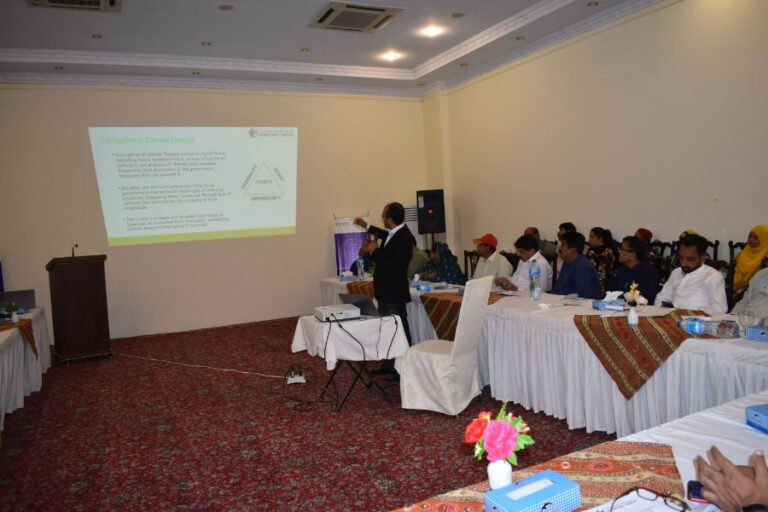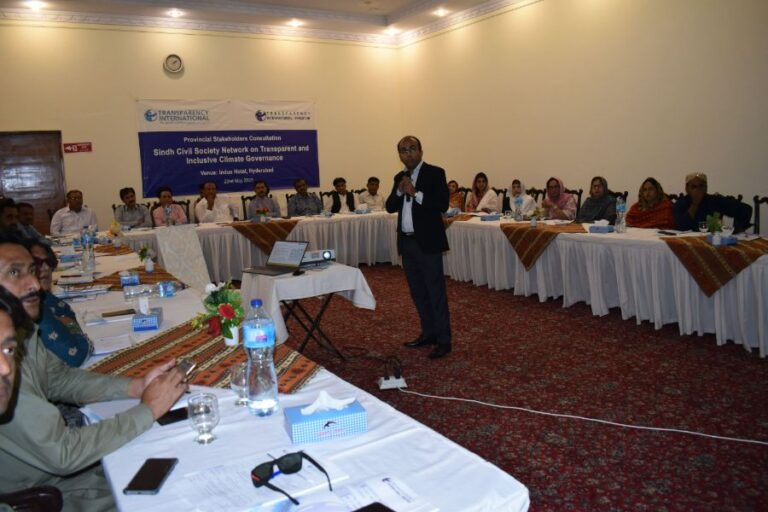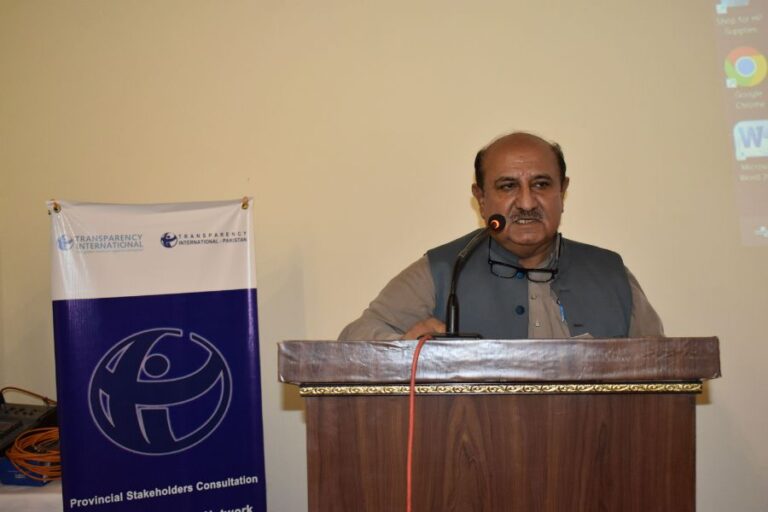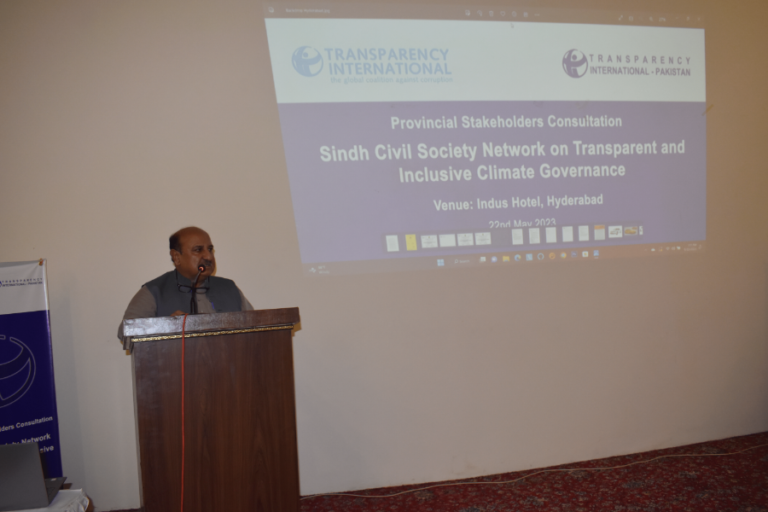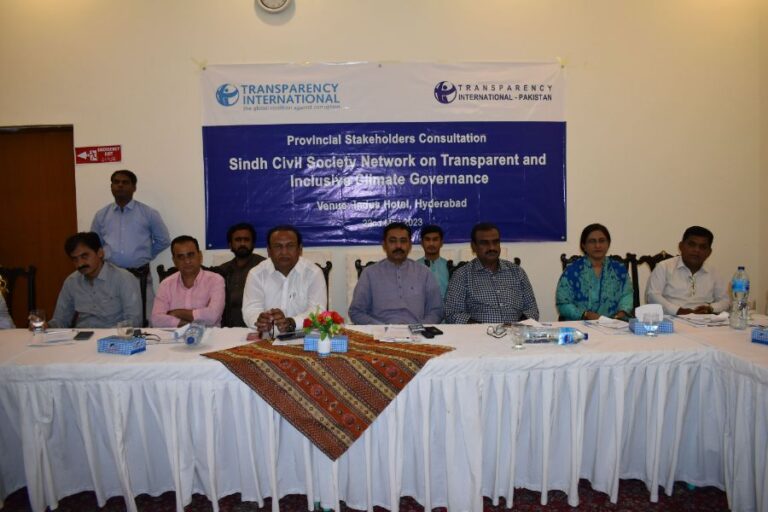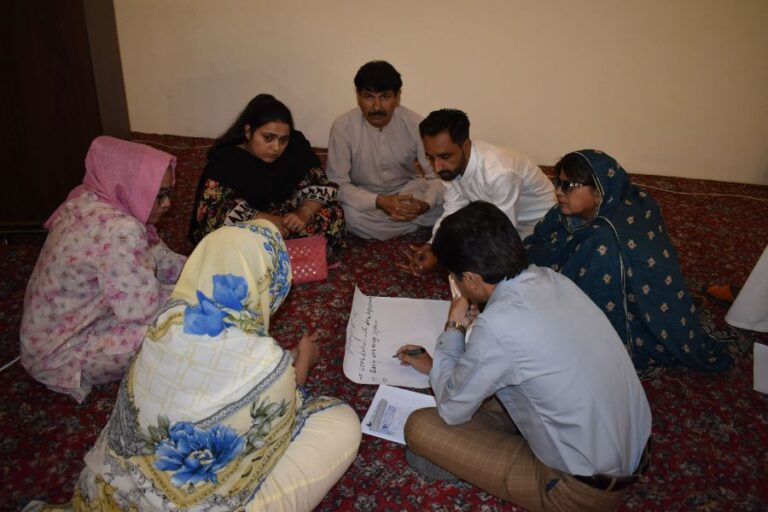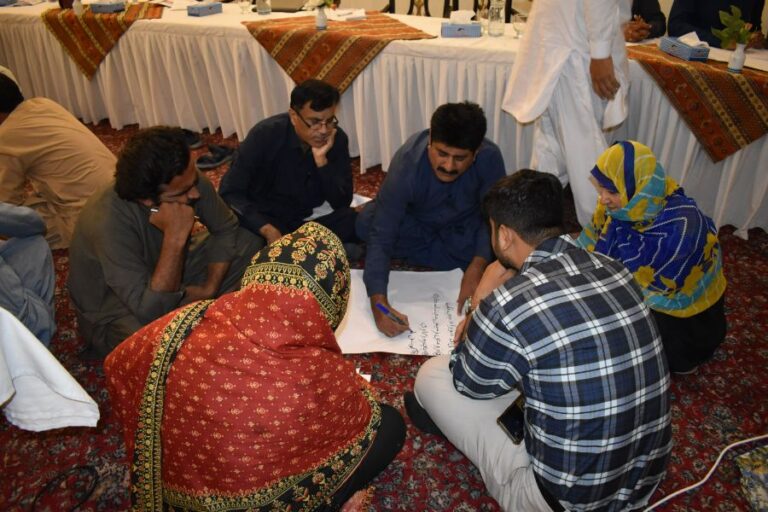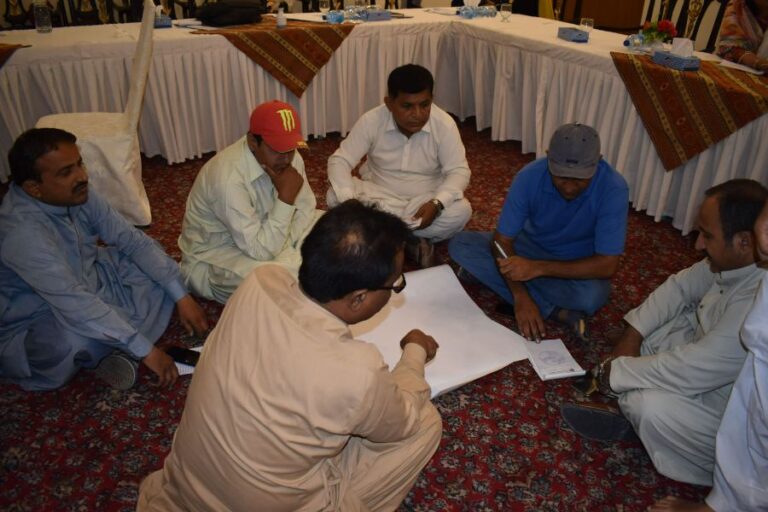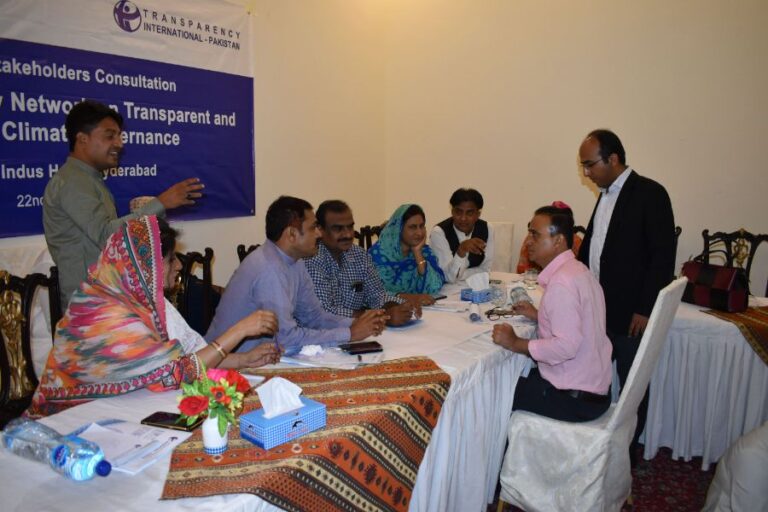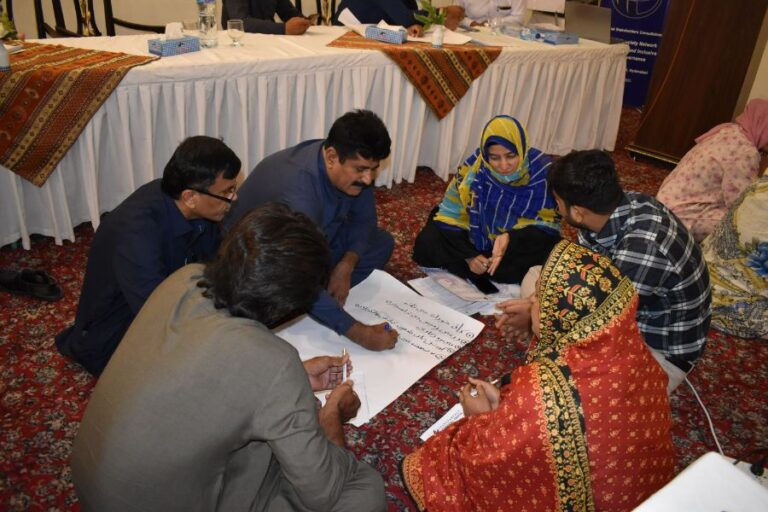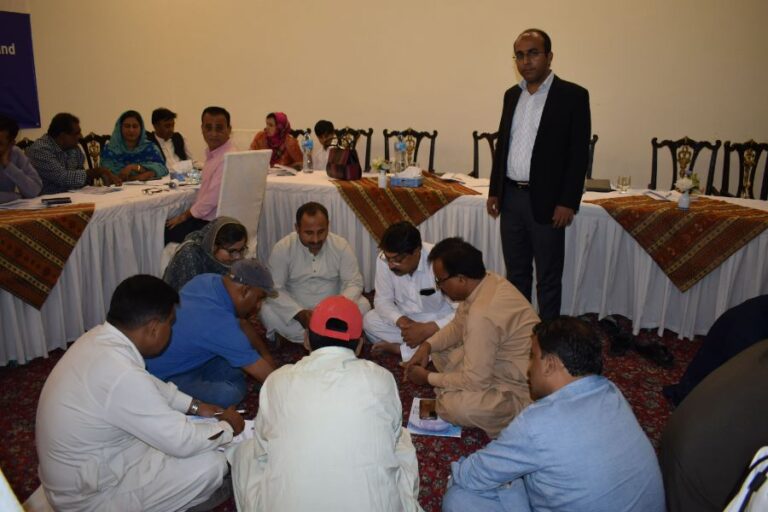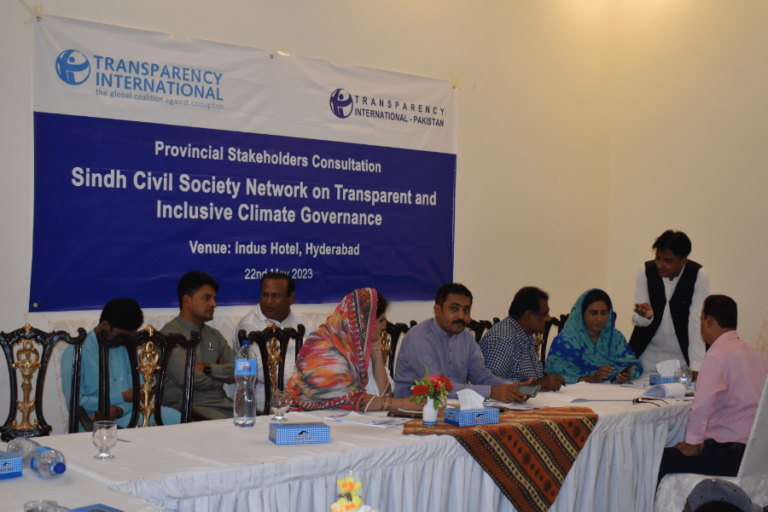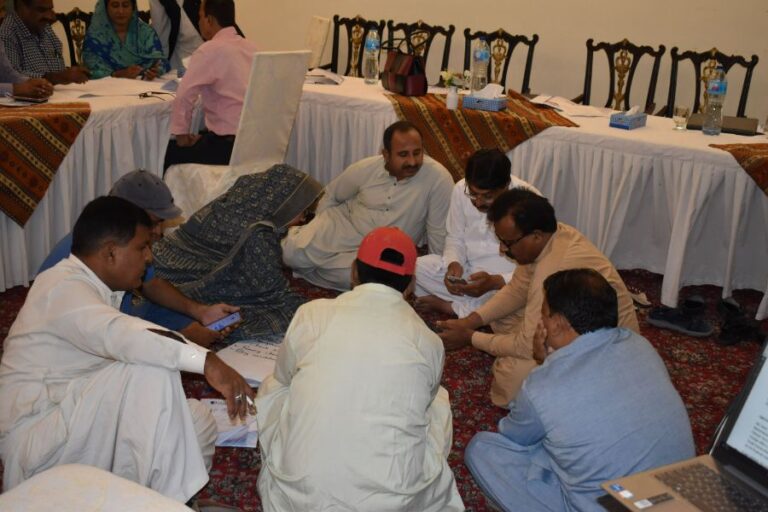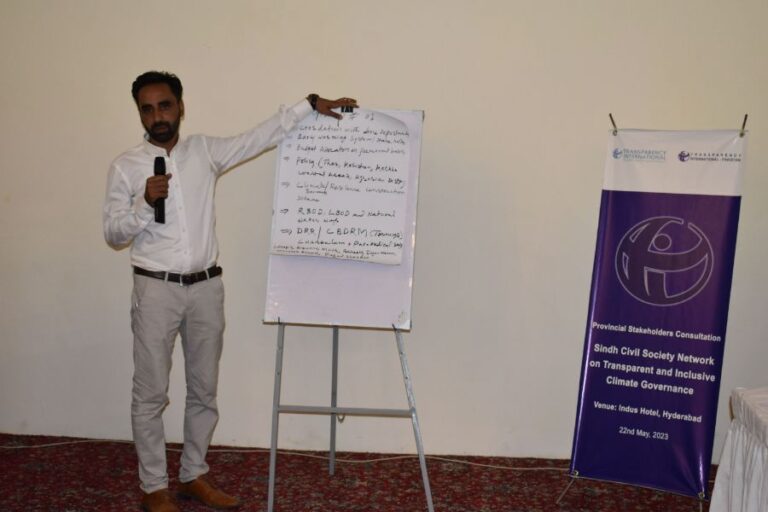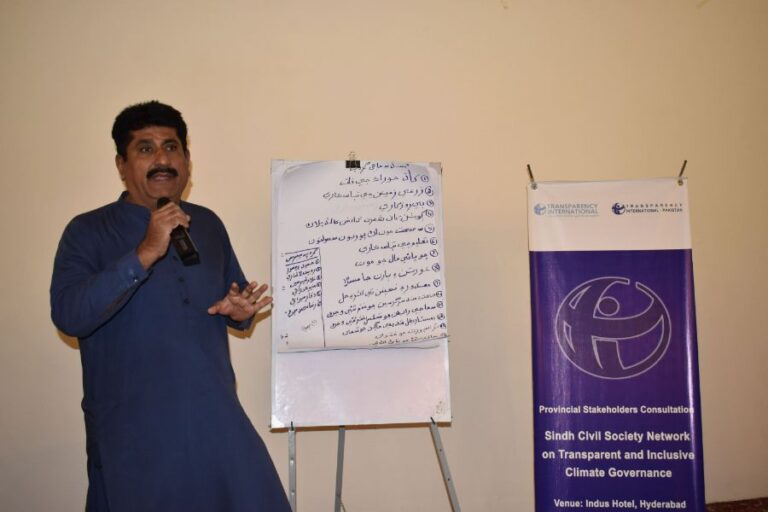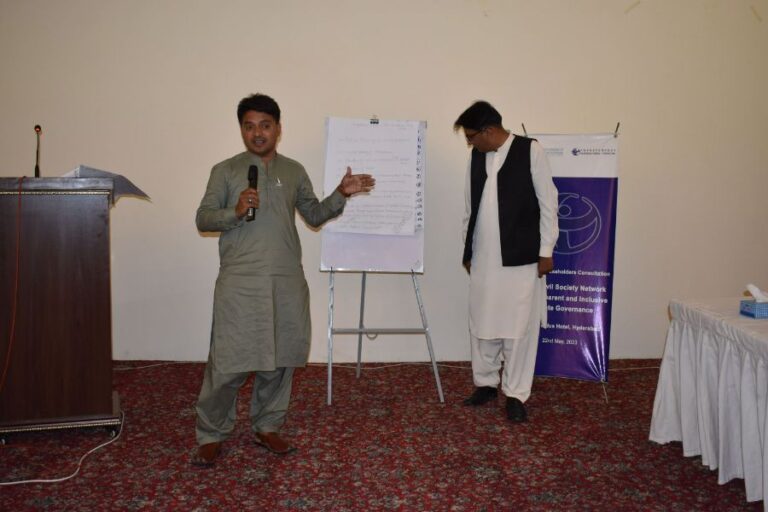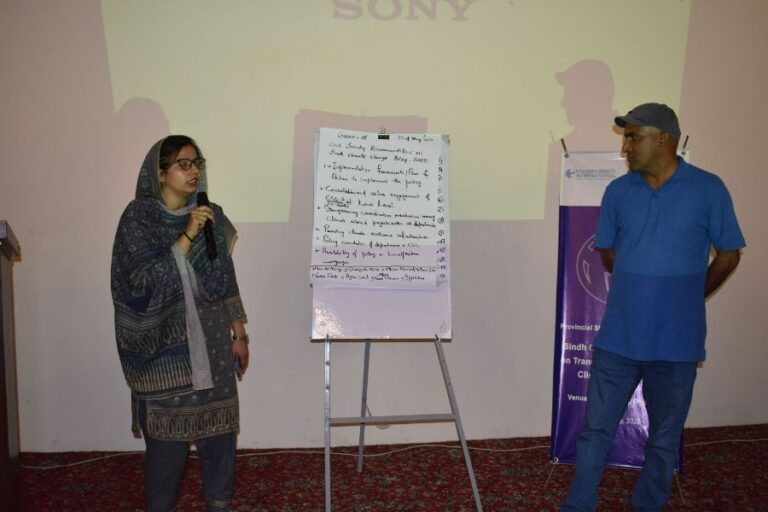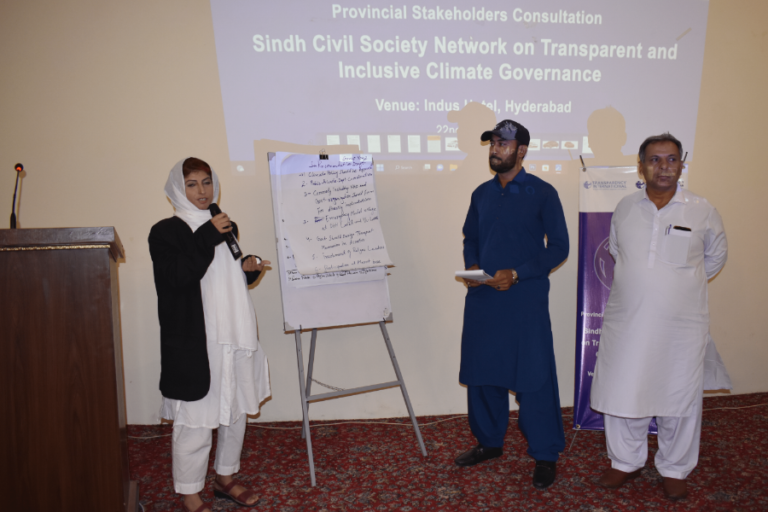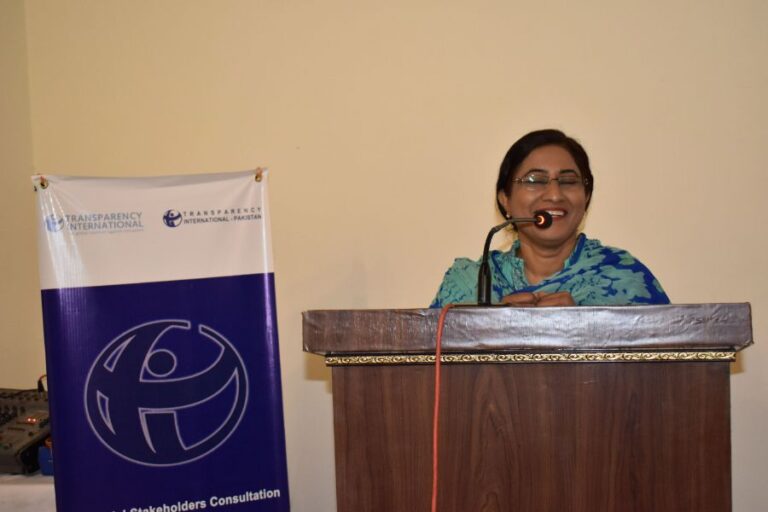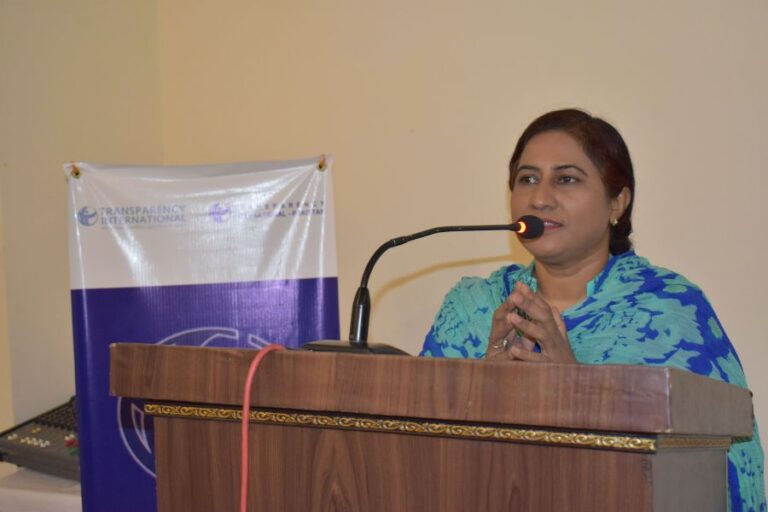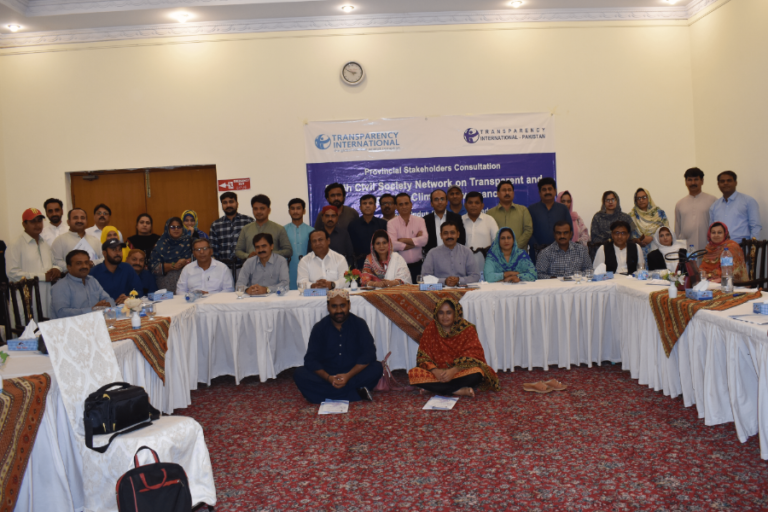- Home
- Workshop: Provincial Stakeholders Consultation (Sindh Civil Society Network on Transparent and Inclusive Governance)
Workshop: Provincial Stakeholders Consultation (Sindh Civil Society Network on Transparent and Inclusive Governance)
Workshop: Provincial Stakeholders Consultation (Sindh Civil Society Network on Transparent and Inclusive Governance)
Venue: Indus Hotel, Hyderabad
Date: 22 May 2023
Overview of the Event
Transparency International Pakistan organized inaugural stakeholders’ consultative workshop/meeting and established Sindh Civil Society Network on Transparent & Inclusive Governance on 22 May 2023. Around 50 participants representing UN agencies, civil society organizations, relevant line departments, and academic participated in the consultation meeting and provided valuable insights regarding the existing policy, procedural, and legislative gaps, as well as identified issues for enhancing inclusion and integrity practices in climate governance framework in Sindh province.
The event formally began with the recitation of the Holy Quran. A round of introduction was held after which Mr. Toufique Wassan, Project Coordinator Climate Governance and Integrity Programme Pakistan (CGIP) shared the objectives of the consultative meeting.
Afterwards, Mr. Kashif Ali Shaikh Acting Executive Director, Transparency International Pakistan delivered opening remarks. He introduced the work of Transparency International and provided a synopsis into the projects being implemented. In his detailed talk, he highlighted the importance of work on climate justice with engagement of civil society mainly youth, underrepresented and vulnerable segments facing social inequalities due to climate cries.
He argued that corruption remains the most potent risk in climate finance and lack of transparency and accountability means that the benefits of climate action are not distributed equitably.
Moving on, Mr. Toufique Wassan, Project Coordinator, TI Pakistan gave a detailed presentation on Sindh Climate Change Policy Draft 2022 and discussed the status of Proactive Disclosure of Financial Expenditures allocated for Climate Change among the climate bodies such as Environment, Coastal Development Authority, Rehabilitation Department, Forest and Wildlife Department and Irrigation Department. He shared key highlights of the policy and emphasized on the major threats to Sindh province due to climate cries.
Next, Mr. Rafique Jamali, Deputy Director, Department of Social Welfare, Government of Sindh spoke about the role of his department to address the issues/challenges during Flood Emergency Response. He shared that in District Matiari, number of international agencies are working to reach out to flood affected and the government has issued No Objection Certificates to effective Flood Emergency response. He argued that corruption and lack of integrity is one of the key reasons behind weak humanitarian response and urged that civil society and government need to work collectively to come up with solution to prevent this menace. He appreciated timely intiaitive of Transparency International Pakistan to address the issue of Transparency and Inclusiveness in climate governance framework in the province.
Next, Ms. Shazia Arshad, Representative UNFPA shared UNFPA’s Work particularly on Gender Based Violence during Flood Emergency Response and engagement with grassroot level civil society organizations to facilitate the vulnerable communities in Sindh Province.
Next speaker was Dr. Raj Batra, Representative WHO Sindh. He gave briefing on WHO response in Flood emergencies particularly its work in the Health Sector. He briefly explained that WHO is working closely with the District Administrations, Health Department, and other relevant stakeholders to mitigate the effects of 2022 floods.
Afterwards, Dr. Abdul Razaque Channa, Assistant Professor Department of Anthropology & Archeology University of Sindh discussed in detail the topic “Climate Change and its Impacts on Women and Children”. He shared his case study of Flood Affected Women during Flood Emergency in Jamshoro District, Sindh. He also spoke in detail about Adaptable Living and Government Policies to facilitate the Marginalized Communities during humanitarian emergencies.
The presentations were followed by tea break.
Afterwards, Mr. Kashif Ali, Acting Executive Director TI Pakistan gave detailed presentation on “Inclusive Decision Making and Integrity Approaches for Transparent Climate Action”. He highlighted that the communities that are especially vulnerable and underrepresented often suffer the most due to climate crisis. He highlighted that inclusive climate has three elements: Inclusivity of Process, Inclusivity of Policy and Inclusivity of Impact and highlighted areas of improvement for achieving inclusive climate action in the province. He insisted that, in the last decade, climate finance worldwide almost doubled, reaching an estimated US$850 billion by 2021. However, this increased climate finance brings multiple corruption risks, and how financial flows can be protected from corruption, is key to achieving progress. He highlighted 04 key integrity pillars to ensure climate finance is free from corruption. These include: Comprehensive whistleblower protection, Promoting transparent procurement and integrity pacts, Preventing conflict of interest, Due Diligence and financial integrity.
Next, Professor Muhammad Ismail Kumbher from Sindh Agriculture University Tando Jam spoke about the current scenario of climate change in the Sindh province. He stressed that Sindh province is highly vulnerable due to climate change. There is a need to develop proper mechanism through PDMA at district and union council level to cope with the situation. He said the climate risks are increasing due to poor management and lack of citizen participation. He pointed out that the forest cover should be 33% but we stand at 5% at the moment. He highlighted the impact of climate change on agriculture sector in Sindh Province and argued corruption to be one of the main reasons behind our inability to address climate crisis.
Towards the end, a group activity was carried out. Participants were divided into five groups to present Set of Recommendations to improve Sindh Climate Change Policy Draft 2022. During the group work, the participants came up with number of recommendations on the need for communities and civil society participation in climate policies and highest standards of integrity in the utilization of climate funds to prevent the risk of corruption. TI Pakistan will share draft recommendations with the provincial government to advocate for transparent and inclusive climate governance framework in Pakistan
At the end, Ms. Pushpa Kumari (former Member Sindh Human Rights Commission) gave concluding remarks. She appreciated the efforts of TI Pakistan and thanked all Participants for their dedication to serve the communities which are affected due to climate change and poor governance structure to overcome such challenges. She emphasized that there is an urgent need to include women and vulnerable communities in the decision making process.


